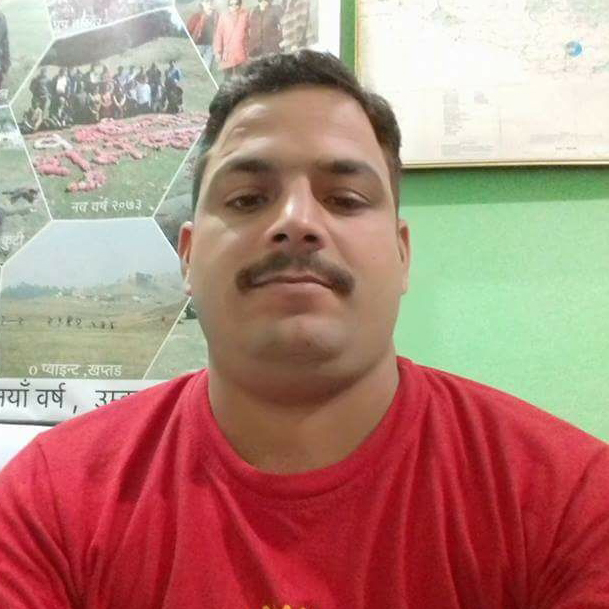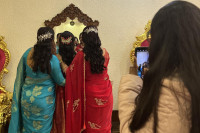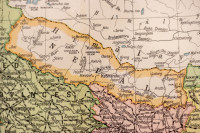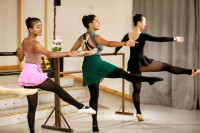Culture & Lifestyle
The sound of tradition
Laxmi Rana is not just singing—she’s safeguarding the cultural legacy of the Rana Tharu community.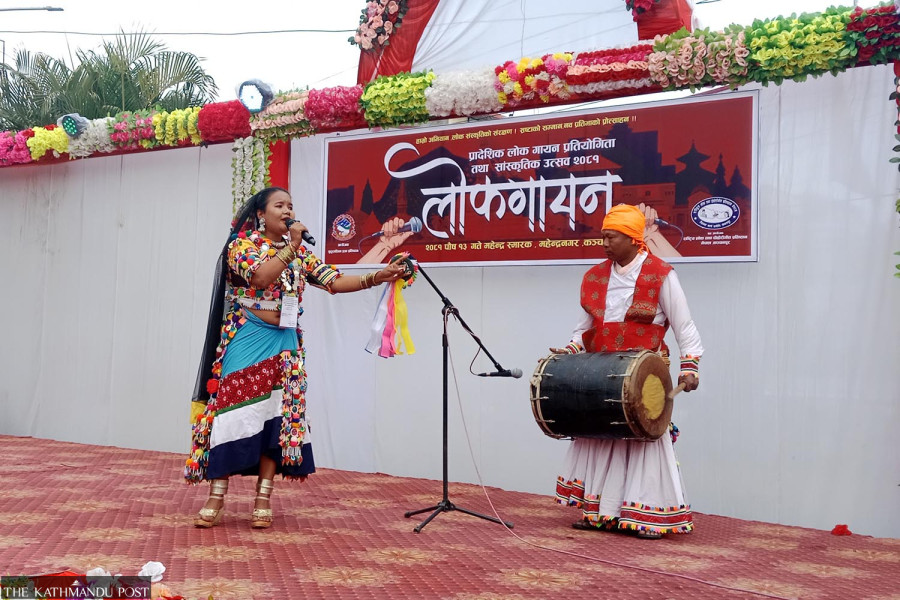
Bhawani Bhatta
Laxmi Rana, now 22, grew up humming songs from her community but never imagined becoming a singer. After completing her SLC (now SEE), her passion for music inspired her to learn the guitar. Three months into her guitar lessons, she decided to devote her life to music.
From Rajpur, Dhangadhi Sub-metropolitan City 13, Kailali, Rana says, “Initially, it was just a hobby, but later I realised this is the only way to earn money.” She would go to every programme held in the settlement to sing Rana Tharu songs and even request to sing.
Rana, who took up music this way, has become a popular singer in her community. Also, she is the only one in her community who studies music. “From where I am, there are very few singers from the younger generation, and even fewer who record their music. No one pursues singing after completing their studies,” she says.
After learning the guitar, Rana started singing in concerts in Dhangadi. Her maternal grandmother was a singer, and her mother also sang to some extent. However, none of the songs they performed were ever recorded. She believes her family background influenced her inclination toward music.
After starting her singing career, Rana travelled to rural areas to search for traditional Rana Tharu songs. She gathered the lyrics of songs sung during various festivals and fairs. “What songs are sung during Teej? What songs are sung during Holi? By doing this, I learned what I found,” Rana explains. “I collected songs from various rituals, from grazing cows and buffaloes to singing during rice planting. I began performing these songs in the community.”
Rana recently graduated from Padma Kanya Multiple Campus with a degree in music. Her latest song, ‘Javaniko Dosh’, has been well received. So far, she has recorded over two dozen songs for the Rana Tharu community.
Currently, the Maghi season has kept her busy with various programmes. However, she mentions that her participation in fairs and festivals remains limited. She criticises other communities besides the Tharu community for inviting artists from outside while neglecting local talent.
Recently, Rana secured first place in a folk singing competition organised by Sudurpaschim Pragya Pratishthan and National Folk and Dohori Geet Pratishthan, earning a prize of Rs20,000. Previously, she also participated in ‘Voice of Nepal Season 2’ and has travelled to various parts of the country to perform. While she has sung different songs at festivals, her recordings are exclusively Rana Tharu songs. Her first recorded song, ‘Teri Yaad Satabe’, was released seven years ago.
Rana is currently teaching music at various schools in Kathmandu. She notes a significant difference between singing with formal training and singing without it. “Now, I will improvise and enhance the songs and music of my community and find joy in it,” she says.
Rana’s father, Balduram, works in construction. She is the youngest of three siblings.




 13.12°C Kathmandu
13.12°C Kathmandu